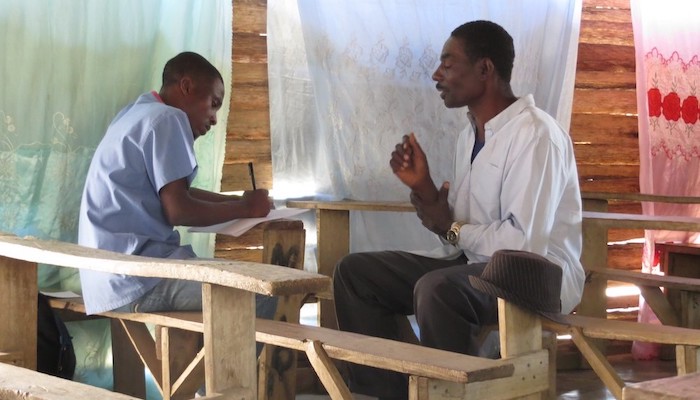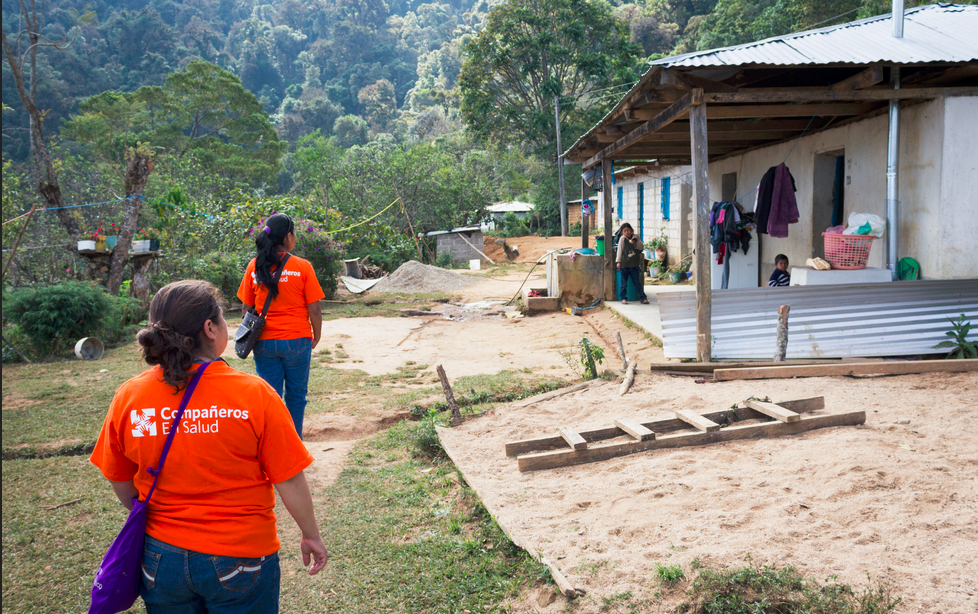Assess System Readiness
Assessing system readiness requires implementers to consider local factors that may impact the development, quality, and success of a mental health program. This section of the Resource Library includes tools to:
- Evaluate contextual factors that might affect people with mental health conditions or the viability of a program.
- Assess the disease burden attributable to mental illness.
- Understand lived experience and community needs using qualitative analysis.
Evaluate Contextual Factors
Understanding the contextual factors surrounding mental health services is fundamental to establishing and expanding mental health systems effectively. These factors have the potential to significantly influence both the demand for and supply of mental health services within a given community, region, or country. This section outlines essential tools utilized by PIH to explore and navigate contextual factors during the establishment of its mental health programs.
Situational Analyses
When establishing or growing mental health systems, it is important to understand contextual factors that may affect people with mental health conditions and serve as facilitators or barriers to mental health integration into the general health system. Below are tools to help teams identify contextual factors around mental health delivery.
Model for Understanding Success in Quality (MUSIQ)
Several contextual factors can impact the viability of a program. This MUSIQ tool groups these factors into several broad categories: the team working, the microsystem in which they function, local support and capacity, the organization in which someone works, and the environment external to an organization to allow for analysis and action.
Assess Disease Burden
Assessing and projecting the disease burden of mental health conditions is critical to planning and implementing mental health interventions. However, accurate estimates of this burden remain scarce, especially in low-resource settings where this burden is often underestimated. This section presents the latest estimate of the burden of mental health conditions across PIH sites, alongside a tool designed to gauge required health system inputs based on burden of disease projections.
Report on the Burden of Disease at PIH
The Report on the Burden of Disease Attributable to Mental Illness at PIH offers an assessment of the burden of mental health conditions across PIH-supported sites. It also provides useful insight for assessing resource needs and making data-informed decisions to deliver mental health care within these contexts, using Institute for Health Metrics and Evaluation (IMHE) data.
PIH’s Universal Health Coverage Monitoring and Planning Tool
PIH has developed and tested a Universal Health Coverage (UHC) Monitoring and Planning Tool to assist with the planning and implementation of health interventions by projecting disease burden and UHC needs at the facility and catchment area level and determining estimates of required health system inputs. This resource pulls information from the World Health Organization’s compendium of data.
Understand Lived Experience and Community Needs
Qualitative methods are crucial to understanding lived experience and community needs. While quantitative data allow for comparisons and highlight progress, they cannot express motives, opinions, feelings, or relationships. Several qualitative methods can be used to examine community challenges and needs, such as individual and group interviews, community meetings, and interpretation of records or transcripts. This section provides examples of how PIH has used qualitative methods to help inform mental health programs development.
Exploring the Lived Experience of Psychosis in Haiti and Malawi

Dr. Joseph Reginald Fils-Aimé conducted a qualitative study to better understand the local knowledge, the lived experience, and the best paths to recovery for people living with psychosis and their families in Mirebalais and Petite-Rivière de l’Artibonite Region of Haiti. In addition, Chenjezo Grant Gonani sought to understand the experiences of family caregivers of patients living with severe mental health conditions by exploring the cultural dimensions of family caregiving practices and the effects of family caregiving on both patients and caregivers through qualitative interviews in Neno District, Malawi.
Exploring the Barriers to Mental Healthcare Engagement in Mexico

Dr. Georgina Miguel Esponda conducted a qualitative study to investigate factors that influenced engagement in primary mental healthcare services in Chiapas, Mexico. 30 semi-structured interviews with service users with depression or anxiety were conducted. The analysis of these interviews revealed the need for mental healthcare providers to better understand the care needs and preferences of service users to improve help-seeking.
Exploring the Impact of Self-Help Groups in Rwanda
Sifa Dorcas and Dr. Nina Sreshta conducted a qualitative analysis to describe the “self-help groups” (SHGs) of patients and families in Burera District, Rwanda to better understand the impacts these groups have on people with mental health conditions. These self-help groups are a group of people who gather voluntarily, sharing a common desire to overcome mental illness or increase their level of cognitive, social, and emotional wellbeing.